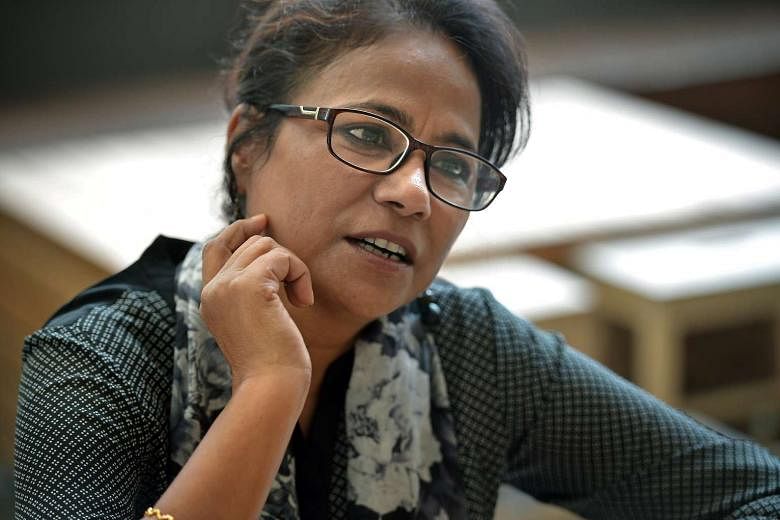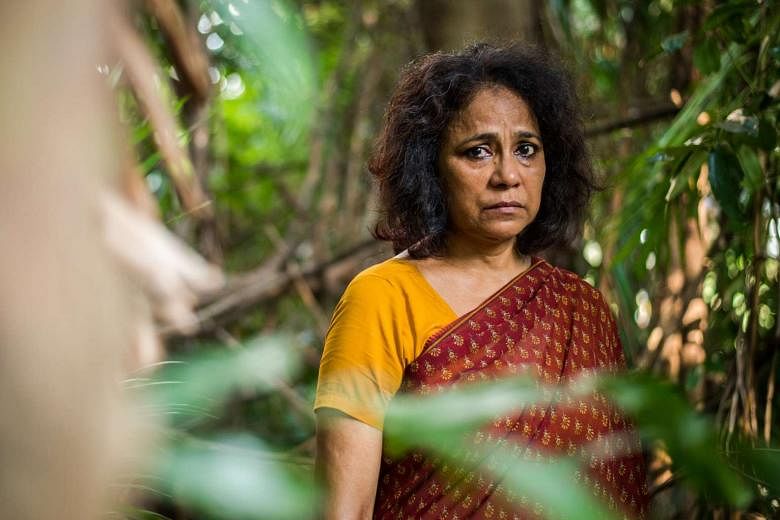The role of Phoolan Devi in the 1994 Hindi film Bandit Queen is not one for the faint of heart.
In one horrific sequence in the film which takes on issues such as child brides and systemic discrimination against the lower castes and women, Phoolan is raped by a gang of higher caste bandits over several days. She is then paraded naked in the village.
When actress Seema Biswas first read the script, her reaction was: "Oh my god." Not because of the "bold scenes", but because it was such a rich and challenging role.
The character was based on the real-life controversial figure Phoolan Devi, who took revenge by returning to the village and killing 22 of the inhabitants, including two of her rapists. She later became a member of parliament and was assassinated in 2001.
Still, Biswas agonised over whether she should take the part and it was director Shekhar Kapur (Elizabeth, 1998) who convinced her to do so. He said: "I don't want to show reality in a beautiful way. It's ugly, so I want to show it as ugly."
She had one condition, though - the use of a body double. "Basically, I'm a very shy person and, at that time, I thought that I could not do it."
The 50-year-old was speaking to Life at Lasalle College of the Arts, where she had held a session with students from the Puttnam School of Film last Friday.
Her performance as Phoolan is a ferocious one that sears itself into the brains of viewers. In person, there is no trace of that onscreen fearsomeness and she comes across as measured and soft-spoken.
To prepare for the role, she could not legally meet the real-life Phoolan. Instead, she wrote an "autobiography" in character - "my mental trauma, my thoughts, my imagination" - in order to slip under Phoolan's skin.
The film also marked her transition from theatre to the world of cinema, which Kapur used to remind her is 20 times bigger than real life. "I was enjoying the medium of film because it's more subtle, you didn't need to project it so."
Back in 1994, the social climate in India was even more conservative than it is today and she describes the reaction to Bandit Queen as shocking and disturbing.
"People were not talking about the artistic point of view, social issues or political issues, but zeroed in on the bold scenes."
But she had support from the people who mattered. After watching the film, her father said proudly to her mother, who was also a theatre practitioner: "Only my daughter can do such a strong performance." Biswas adds: "That was my biggest compliment."
And she went on to win India's National Film Award for Best Actress.
She has since established herself in the film world with turns in works such as Deepa Mehta's Water (2005), about the plight of India's widows, and Midnight's Children (2012), an adaptation of Salman Rushdie's celebrated 1981 novel of the same name.
What matters more to her is the project as a whole rather than the size of her role. "What is the film? The subject, the director, the canvas. Is my character meaningful such that the film is not complete without it?"
Some of her movies deal with social issues and it can be sobering to think that outside of cinema halls, they might have had very little impact.
Recalling the shocking rape of a medical student in New Delhi in 2012, she says: "It was so brutal and it disturbed me. What's the point of making good cinema and showing social issues when people are not accepting it? But, at the same time, we should not give up. Our intention should be to give something good."
It is an encouraging sign then that she has signed on to local film-maker K. Rajagopal's drama A Yellow Bird. She plays the mother of the protagonist, an ex-convict. "I'm shooting it now so I don't want to talk too much about it as the process is still going on."
She says of Rajagopal, who contributed to the compendium film 7 Letters: "He's very passionate and very clear of what he wants. And since he has a theatre background, we have a good understanding."
Biswas, who is not married, was once prepared for Bandit Queen to be her "first film and last film". But she has acted steadily since then, both on screen and on stage. "I love acting. It's my life and it gives me energy."
It is a passion that has taken her to all corners of the globe and she refers to Mumbai as being merely a base camp. "I don't think about profit or loss, I just listen to my heart. I'm like a gypsy, I travel all over the world, that's what I like."



